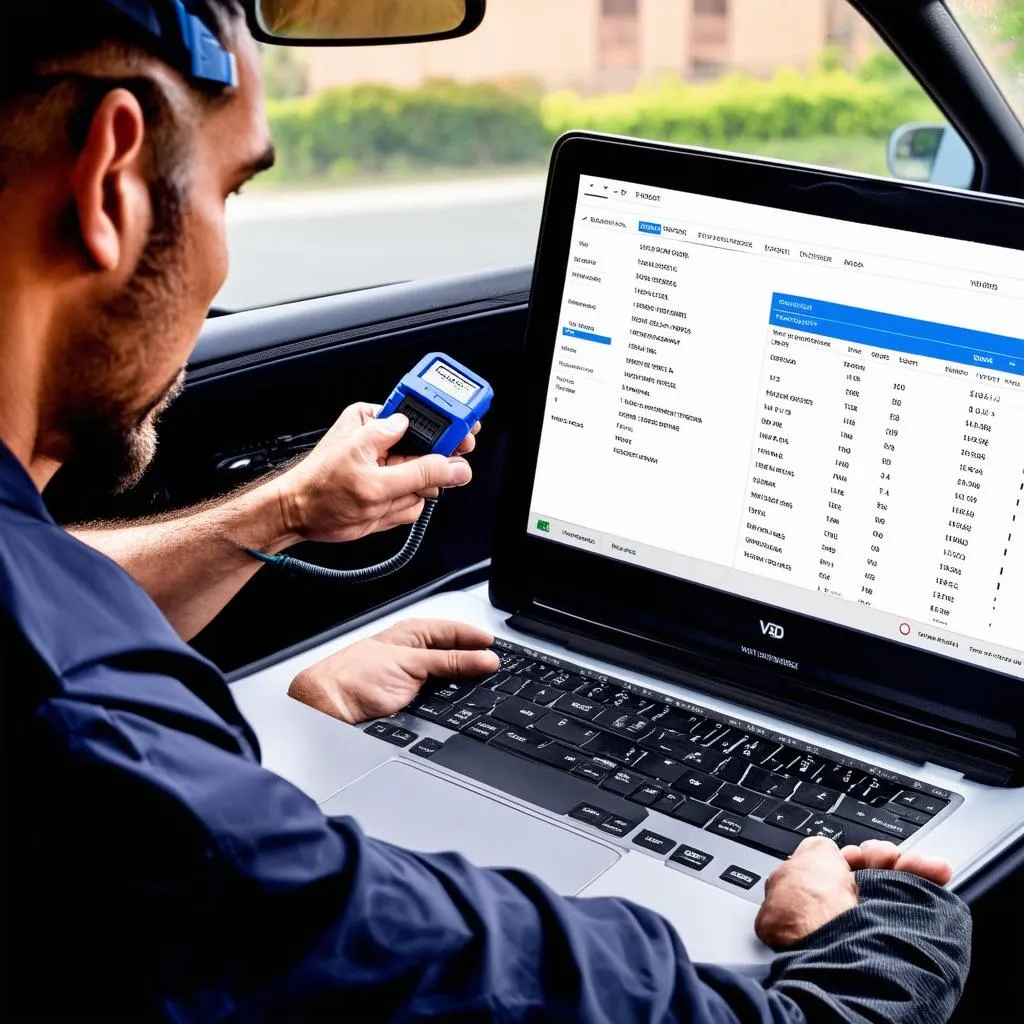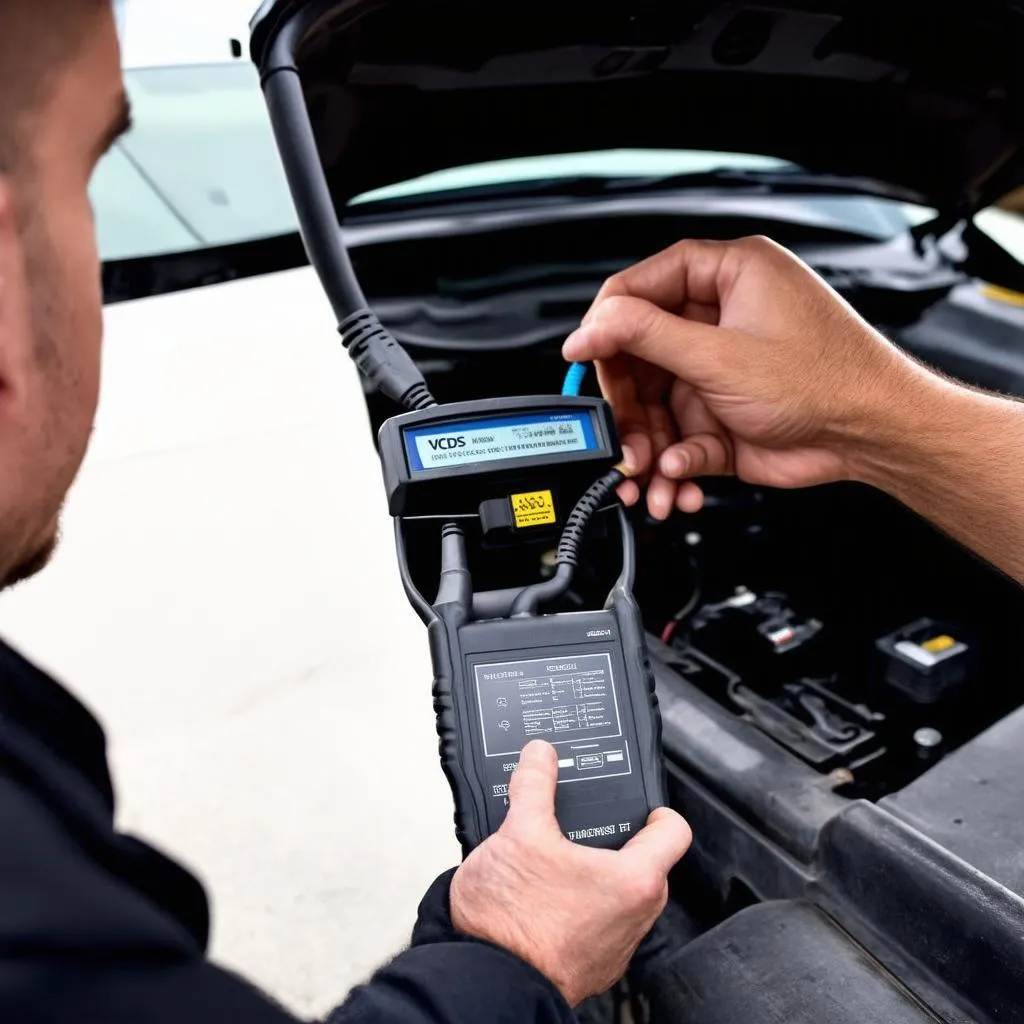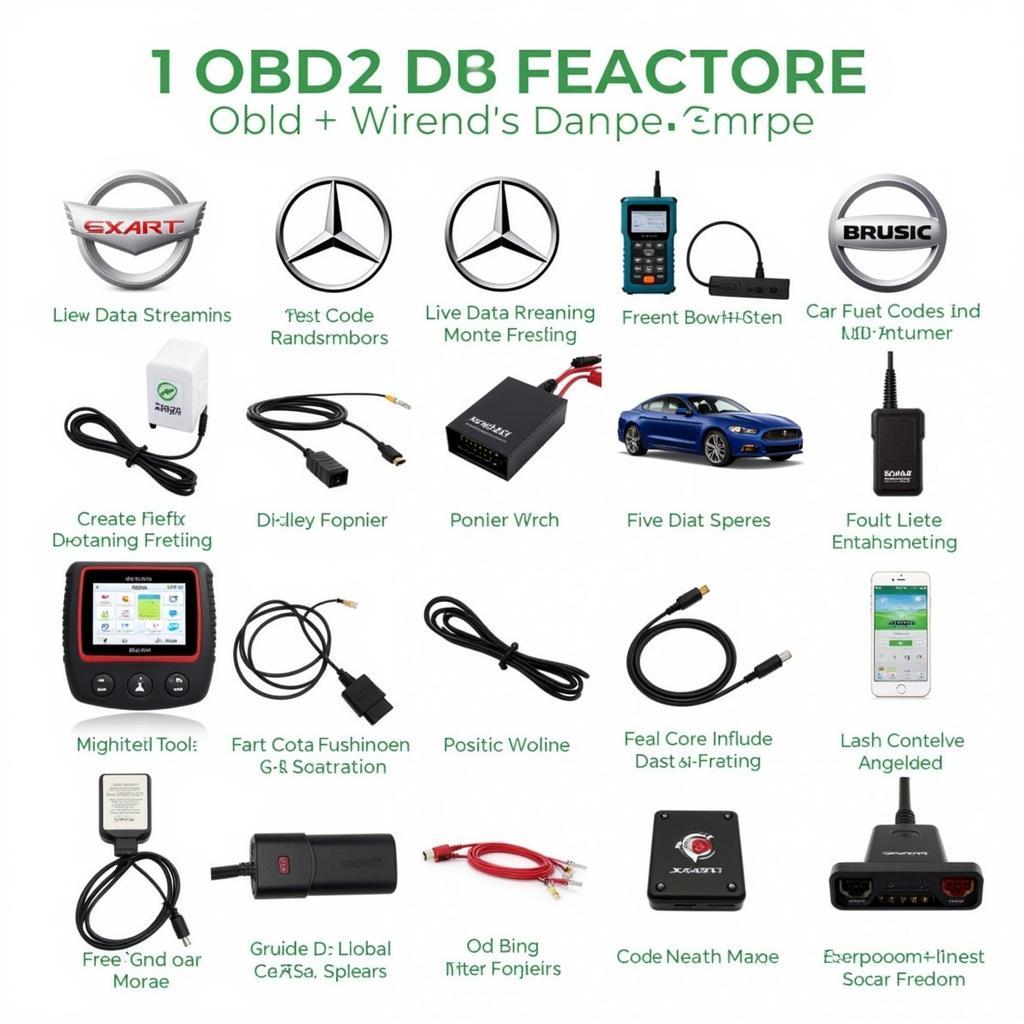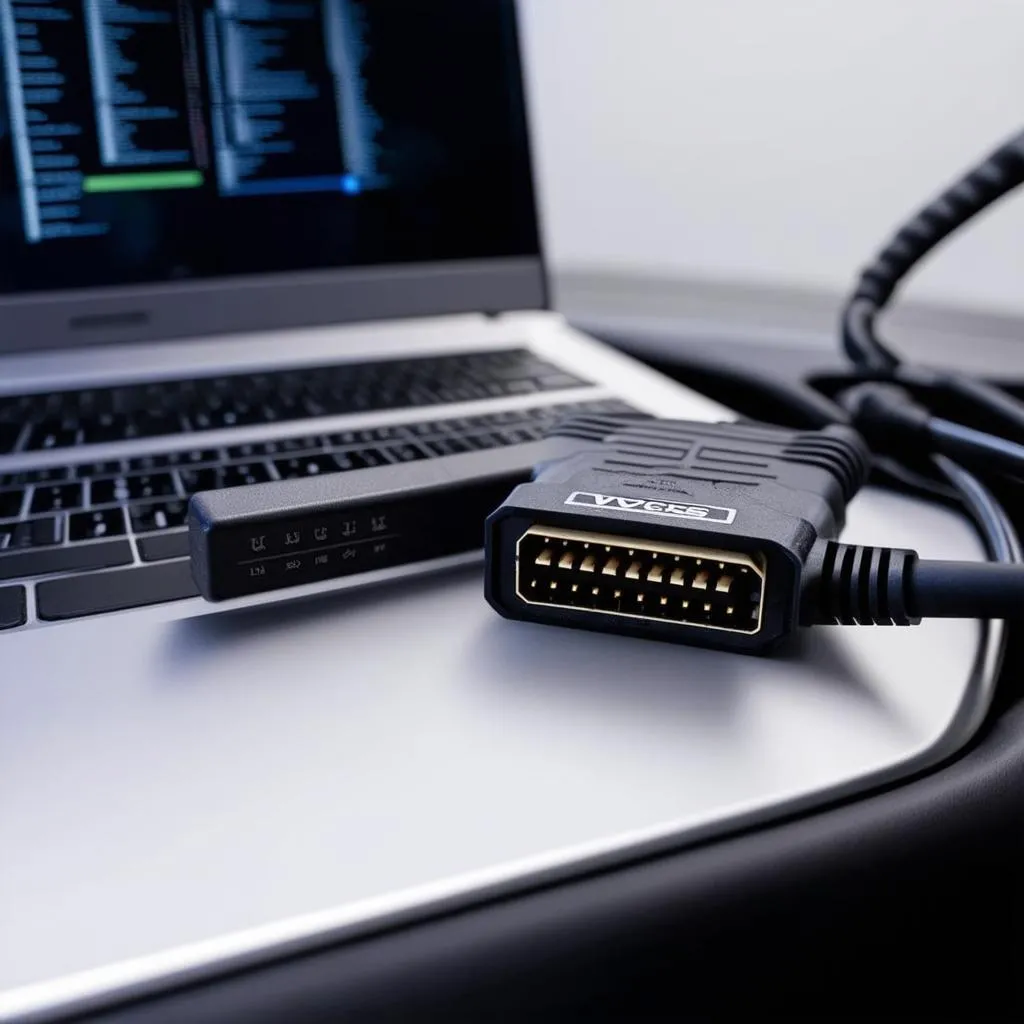VCDS, short for VAG-COM Diagnostic System, is a powerful software renowned for diagnosing and troubleshooting Volkswagen Audi Group (VAG) vehicles. However, its compatibility with vehicles beyond this group often sparks curiosity. If you’re wondering, “Does VCDS work on other cars?”, you’re in the right place. Let’s delve into this question and explore the capabilities of VCDS.
Understanding VCDS Compatibility
While VCDS is primarily designed for VAG vehicles (Volkswagen, Audi, Seat, Skoda), its compatibility extends beyond this scope to a certain degree. This is because it communicates using the OBD-II port standard found in most modern vehicles.
However, it’s crucial to understand that full functionality is typically limited to VAG cars. This means while you might be able to connect to a non-VAG vehicle and access basic functions like reading and clearing generic OBD-II codes, advanced features like module coding, adaptation, and access to manufacturer-specific protocols might be restricted or unavailable.
“Think of it like using a universal remote,” says automotive electronics expert Dr. Emily Carter. “You might be able to turn the TV on and off, but accessing advanced settings requires a dedicated remote.” Similarly, VCDS excels with VAG vehicles, offering a wider range of functionalities compared to non-VAG cars.
What Can VCDS Do on Other Cars?
The extent of VCDS functionality on non-VAG vehicles varies depending on the car model and year. Generally, you can expect:
- Reading and Clearing Generic OBD-II Codes: VCDS can retrieve and erase generic diagnostic trouble codes (DTCs) related to engine, transmission, emissions, and other systems.
- Viewing Live Data: Monitor real-time sensor data like engine RPM, coolant temperature, oxygen sensor readings, and more.
Limitations on Non-VAG Vehicles
While VCDS offers some functionality on other cars, it’s important to acknowledge the limitations:
- Limited Module Access: You might not be able to access all control modules (engine, transmission, ABS, etc.) present in a non-VAG vehicle.
- Coding and Adaptation Restrictions: Advanced functions like coding (changing control module settings) and adaptation (calibrating components) are typically unavailable or very limited.
- Manufacturer-Specific Protocols: VCDS primarily focuses on VAG protocols, limiting its ability to interpret and interact with proprietary systems used by other manufacturers.
When to Consider VCDS for Non-VAG Cars
If you’re dealing with a non-VAG vehicle, VCDS might be a viable option if:
- You primarily need to read and clear generic OBD-II codes.
- You’re comfortable with the possibility of limited functionality.
However, investing in a scan tool specifically designed for your car’s make and model is recommended for comprehensive diagnostics and advanced functions.
 VCDS connected to a non-VAG car
VCDS connected to a non-VAG car
FAQs about VCDS Compatibility
Q: Can I use VCDS to diagnose my Toyota?
A: While VCDS can connect to your Toyota and read generic OBD-II codes, its functionality will be limited. For comprehensive diagnostics, a Toyota-specific scan tool is recommended.
Q: Will VCDS perform coding and adaptations on my Ford?
A: VCDS is primarily designed for VAG vehicles, so coding and adaptation functions on a Ford will likely be restricted or unavailable.
Q: Is it worth buying VCDS if I own a mix of VAG and non-VAG cars?
A: If you frequently work on VAG vehicles, VCDS is a valuable investment. While its functionality on non-VAG cars is limited, it can still be helpful for basic diagnostics.
 Mechanic using VCDS on a VAG car
Mechanic using VCDS on a VAG car
Conclusion
While VCDS is renowned for its capabilities with VAG vehicles, its functionality extends to other cars with some limitations. It can be a helpful tool for reading and clearing generic OBD-II codes on non-VAG vehicles. However, for comprehensive diagnostics, coding, and adaptations, a dedicated scan tool for your car’s make and model is recommended.
For more information about VCDS and other automotive diagnostic tools, explore the resources available on CARDIAGTECH. They offer a wide range of products to cater to your specific needs.


